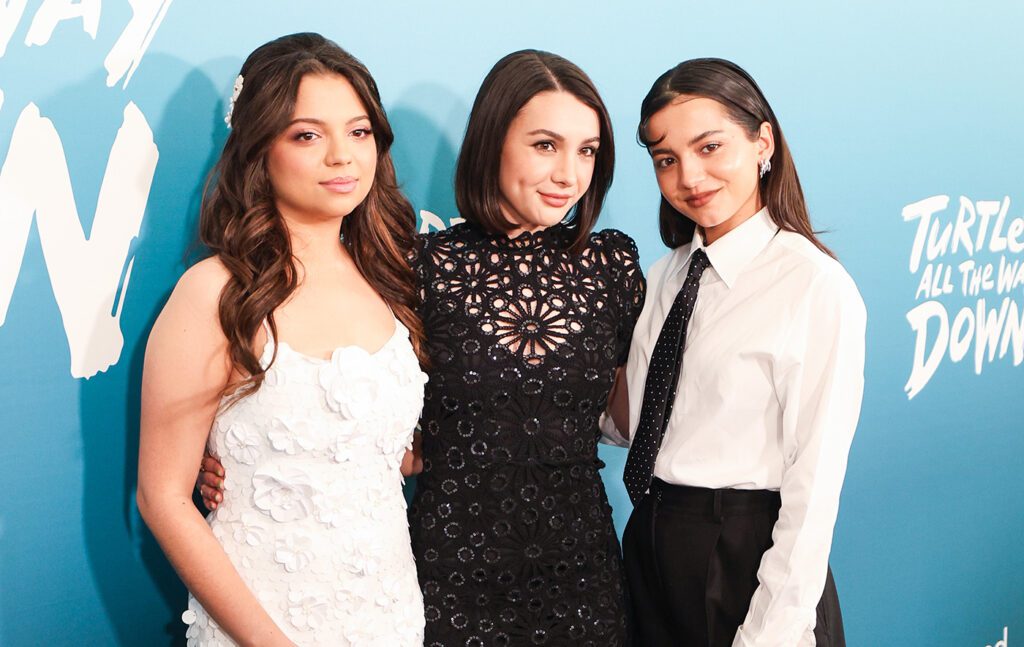In the brand-new movie adaptation of John Green’s 2017 bestseller Turtles All The Way Down, the main character, Aza, lives with debilitating OCD. Green, who has OCD himself, wanted to paint an accurate picture of what the disorder looks like, knowing that most popular depictions of OCD are woefully misleading and even stigmatizing.
Green’s illuminating depiction made the book an instant classic in the OCD community, so the new film, streaming now on Max, is a significant moment for many people who struggle with the condition. Tia Wilson, Community Engagement Manager here at NOCD, joined John Green at the premiere in Los Angeles. Green is partnering with NOCD to pursue a shared purpose: to educate people about OCD, combat misinformation, and help people get better by working with therapists who specialize in OCD.
Wilson interviewed the cast about what they learned about OCD while making the film, what they hope it does for OCD representation, and how people can best support their loved ones with the condition. Here’s what they want the world to know about OCD.
How the cast “captured the truth” of OCD
Isabela Merced, who stars as Aza, says she hopes that those with OCD, including those who don’t yet have the language for what they’re experiencing, get “a realistic sense of what it is to deal with this. I feel like this [movie] will make it more of an actual, serious topic that is not just part of a joke.” Oftentimes, we hear OCD used incorrectly as an adjective, like “I keep my house very clean—I’m so OCD!” As Merced says, this not only distracts from the truth of OCD, but it makes light of an experience that is actually debilitating.
Cree co-stars as Aza’s best friend Daisy, and she agrees that the current societal understanding of OCD is sorely lacking. “The representation of OCD in media, film, and television is severely skewed. It’s super misrepresented and really misunderstood,” she says.
Felix Mallard, who plays Davis, Aza’s love interest, says that through playing his character, he learned that support for people with OCD is more about listening and understanding—not fixing.
Maliq Johnson, who plays Mychal, another friend of Aza’s, learned a lot about showing up for his loved ones, through playing his character, too. “One thing I learned is just to be more aware…more aware of our friends and maybe pay more attention to the little cues that we may miss.” Johnson touches on a great point. Sometimes, we may miss signs that our loved ones aren’t doing well because we either aren’t paying attention or simply don’t know what to look for. In the case of OCD, it can be a very internal experience—some people don’t experience any external, physical compulsions. And because OCD has been so misrepresented, most people don’t know what other signs to look out for.
Green says, “I think for too long we haven’t seen ourselves on screen in a way that really reflects the truth of the [OCD] experience. My hope is that we capture the reality of the experience of obsessive thoughts and the compulsive behaviors we use to manage them, and also that we capture the truth: which is that there is hope even when your brain tells you there isn’t.”
Watch NOCD’s full-length interview with John Green on YouTube now, and stream Turtles All The Way Down on Max.

